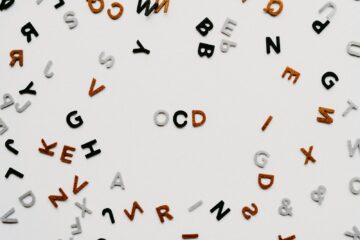Abstract
Obsessive-Compulsive Disorder (OCD) is a chronic mental health condition characterized by intrusive thoughts and repetitive behaviors. Cognitive Behavioral Therapy (CBT) is a well-established treatment for OCD. Recent advancements have introduced computer-based CBT (CCBT) and internet-delivered CBT (ICBT) as potential alternatives to traditional therapy. This paper reviews the effectiveness, cost-efficiency, accessibility, and acceptability of CCBT and ICBT, highlighting methodological challenges and future research directions.
Introduction
OCD affects millions globally, significantly impairing daily functioning. Traditional CBT has proven effective; however, barriers such as therapist availability and geographic constraints limit access. CCBT and ICBT emerge as innovative solutions, offering scalable, accessible interventions (Tumur et al., 2007; Öst et al., 2015).
Effectiveness of CCBT and ICBT
CCBT for OCD: Programs like BTSteps demonstrate effectiveness comparable to therapist-led CBT, significantly reducing OCD symptoms and enhancing social functioning (Tumur et al., 2007). Although therapist-led CBT generally outperforms CCBT, the gap narrows when patients actively engage in self-exposure tasks.
ICBT for OCD: Multiple clinical trials affirm the efficacy of ICBT in both guided and self-guided formats, with significant symptom reductions (Schröder et al., 2020; Wootton et al., 2019). Self-guided ICBT shows large effect sizes, and routine care implementations yield meaningful improvements, albeit with smaller effects compared to controlled environments (Wootton et al., 2021).
Cost-Effectiveness and Accessibility
Cost-Effectiveness: ICBT combined with pharmacotherapy matches the effectiveness of face-to-face group CBT and is more cost-efficient, particularly where traditional therapy access is limited (Wu et al., 2023). Low-intensity interventions, including CCBT, show potential cost benefits over 12 months, though they may not achieve clinically significant symptom changes (Lovell et al., 2017).
Accessibility: Both CCBT and ICBT address critical barriers, enhancing treatment availability in underserved areas. They reduce reliance on high-intensity CBT, potentially alleviating healthcare system burdens (Lovell et al., 2017; Wu et al., 2023).
Acceptability and Feasibility
Patient Acceptability: ICBT generally receives high satisfaction ratings. However, clinician-supported interventions tend to be more acceptable than self-guided formats (Waks et al., 2024). In pediatric populations, ICBT shows promising acceptability and feasibility, warranting further investigation (Babiano-Espinosa et al., 2019).
Challenges and Future Directions Methodological Challenges: Existing studies face limitations, including variability in trial designs. Rigorous, standardized research is necessary to validate CCBT and ICBT efficacy (Lovell et al., 2017).
Enhancing Outcomes: Future research should identify patient characteristics predicting positive outcomes with CCBT and ICBT. Exploring brief, scheduled support sessions may enhance CCBT effectiveness (Tumur et al., 2007).
Conclusion
CCBT and ICBT offer effective, accessible, and cost-efficient alternatives to traditional CBT for OCD. While promising, these interventions require further refinement and integration into clinical practice to maximize their potential.
References
- Babiano-Espinosa, L., Wolters, L., Weidle, B., De Beek, V., Pedersen, S., Compton, S., & Skokauskas, N. (2019). Acceptability, feasibility, and efficacy of Internet cognitive behavioral therapy (ICBT) for pediatric obsessive-compulsive disorder: A systematic review. Systematic Reviews, 8. https://doi.org/10.1186/s13643-019-1166-6
- Lovell, K., Bower, P., Gellatly, J., Byford, S., Bee, P., McMillan, D., Arundel, C., Gilbody, S., Gega, L., Hardy, G., & others. (2017). Clinical effectiveness, cost-effectiveness and acceptability of low-intensity interventions in the management of obsessive-compulsive disorder: The OCTET randomized controlled trial. Health Technology Assessment, 21(37), 1-132. https://doi.org/10.3310/hta21370
- Schröder, J., Werkle, N., Cludius, B., Jelinek, L., Moritz, S., & Westermann, S. (2020). Unguided Internet-based cognitive-behavioral therapy for obsessive-compulsive disorder: A randomized controlled trial. Depression and Anxiety, 37, 1208-1220. https://doi.org/10.1002/da.23105
- Tumur, I., Kaltenthaler, E., Ferriter, M., Beverley, C., & Parry, G. (2007). Computerised Cognitive Behaviour Therapy for Obsessive-Compulsive Disorder: A Systematic Review. Psychotherapy and Psychosomatics, 76, 196-202. https://doi.org/10.1159/000101497
- Waks, S., Moses, K., & Wootton, B. (2024). Acceptability of internet-delivered cognitive behavioural therapy for adults with symptoms of obsessive-compulsive disorder: A meta-analysis. The British Journal of Clinical Psychology. https://doi.org/10.1111/bjc.12462
- Wootton, B., Karin, E., Dear, B., Staples, L., Nielssen, O., Kayrouz, R., & Titov, N. (2021). Internet-delivered cognitive-behaviour therapy for obsessive-compulsive disorder when delivered as routine clinical care: A phase IV clinical trial. Journal of Anxiety Disorders, 82, 102444. https://doi.org/10.1016/j.janxdis.2021.102444
- Wu, Y., Li, X., Zhou, Y., Gao, R., Wang, K., Ye, H., Lyu, N., Wang, C., Zhang, N., Wang, Z., & Fan, Q. (2023). Efficacy and cost-effectiveness analysis of internet-based cognitive behavioral therapy for obsessive-compulsive disorder: Randomized controlled trial. Journal of Medical Internet Research, 25. https://doi.org/10.2196/41283
- Öst, L., Havnen, A., Hansen, B., & Kvale, G. (2015). Cognitive behavioral treatments of obsessive-compulsive disorder: A systematic review and meta-analysis of studies published 1993-2014. Clinical Psychology Review, 40, 156-169. https://doi.org/10.1016/j.cpr.2015.06.003


